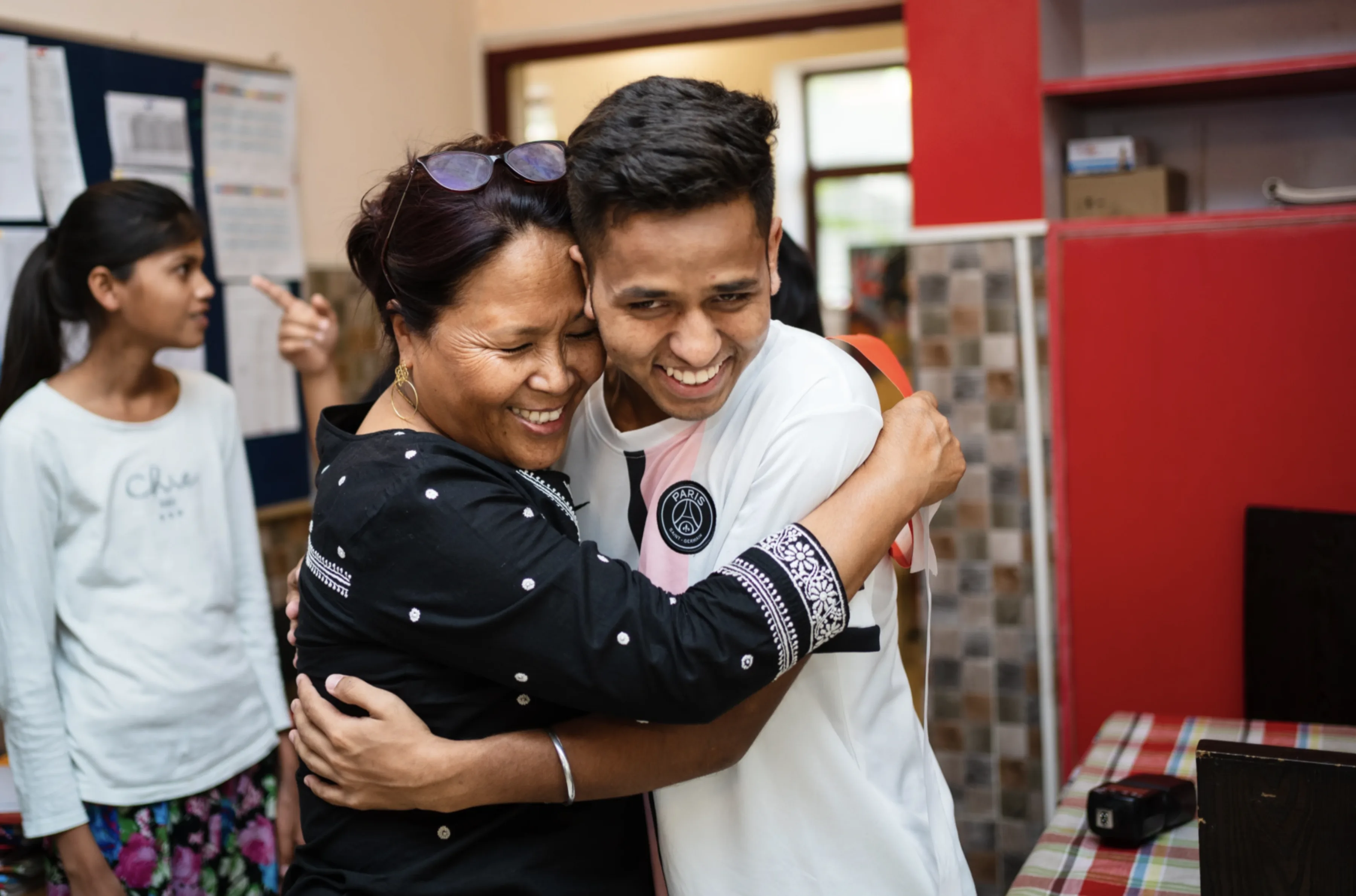
World Mental Health Day
How we promote mental well-being through our Pestalozzi approach to education.
Promoting mental health through compassionate education
In recognition of World Mental Health Day, we want to share how we promote mental well-being through our approach to education at Pestalozzi International. Recently, our team member in India, Cheme and Reena, our Child Wellbeing and Development Officer in Nepal shared their experiences on integrating SEE Learning into our educational practices. They highlight how compassion, mindfulness, and emotional support are central to nurturing a healthy environment for our students.
Educating the Heart, Building Compassionate Individuals
The SEE Learning programme, developed by Emory University from His Holiness the Dalai Lama’s vision for secular ethics, naturally aligns with Pestalozzi International’s core values. For Reena, it was an eye-opener: "I didn’t know that kindness and compassion are qualities we can teach; I thought they came from within ourselves." She found that SEE Learning uses engaging games and activities to instil these values in young minds, fostering a compassionate community from an early age.
At Pestalozzi, we have always promoted a "Head, Heart, and Hands" approach to holistic education. Cheme emphasises, "We are not just focused on academics; we emphasise bringing good human beings into the world. SEE Learning is all about being kind and compassionate, which supports the heart part of Pestalozzi Education."
Mental Health and Social Skills Through Storytelling and Activities
A key aspect of SEE Learning is the use of storytelling and practical activities, which make learning about empathy, forgiveness, and mindfulness more relatable for children. For instance, Reena recently incorporated a story about forgiveness to address a behaviour issue, allowing the children to reflect and move forward positively. She noted that while it's often challenging to say "sorry," SEE Learning activities provided a structured way to express and understand these emotions.
Cheme further explains, "When children are kind and compassionate towards each other, it creates a peaceful and cheerful atmosphere. This practice of reinforcing positive behaviour contributes to their mental health and social skills, building their confidence and self-worth."
Supporting Staff and Creating a Compassionate Community
SEE Learning extends beyond just the students; it also offers guidance for staff and houseparents, enabling a consistent approach across the entire community. Reena shares, "We also did the sessions with staff and housemothers, helping them realise that everyone is in the learning process. It’s important for us to practice what we teach; when children see us embodying these values, it becomes more effective."
Cheme reflects on how they have consistently guided both children and staff on patience, kindness, and understanding. "At Pestalozzi, we’ve always promoted the importance of being non-judgmental and understanding the situation before reacting. This approach creates a supportive environment that directly benefits mental health."
The Intersection of SEE Learning and Pestalozzi Values Education
Both Reena and Cheme agree that SEE Learning and Pestalozzi Values Education are like two parallel tracks that meet at intersections. "They share the same goals: teaching positive human qualities," says Reena. The integration of SEE Learning activities reinforces what we have always taught through Pestalozzi Values Education, bringing consistency and depth to our approach to nurturing compassionate individuals.
Gratitude and Self-Compassion: The Foundations of Mental Well-Being
At the heart of our educational approach is teaching children to practice gratitude and self-compassion. Cheme recalls a recent session with junior boys where they explored the concept of gratitude beyond words. "Gratefulness is in your actions—respect, punctuality, and self-care," she explains. "We teach them that to be kind to others, you must first be kind to yourself."
We believe that mental well-being is built on these fundamental qualities of kindness, compassion, and self-awareness. By educating the heart, we foster a positive environment where children learn to support themselves and others. This is how we, at Pestalozzi International, strive to build a more compassionate world.
We would like to take this opportunity to thank Cheme and Reena for their continuous contributions to the Pestalozzi community. Cheme's dedication to promoting the importance of a compassionate heart in education has been central in shaping our holistic approach. Similarly, Reena's commitment to integrating SEE Learning with our values education has brought new perspectives and practices that have strengthened the mental well-being of our students and staff alike.
We are deeply grateful to Cheme and Reena for their continuous support in delivering a model of heart-led, compassionate education, best supporting the mental wellbeing of staff and students alike.